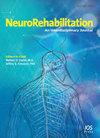医疗法律问题和意识障碍
IF 1.7
4区 医学
Q3 CLINICAL NEUROLOGY
引用次数: 0
摘要
背景:临床医生参与法医诉讼程序的任务和责任可能令人生畏,尤其是在具有挑战性的领域,例如在涉及意识障碍(DoC)的案件中提供法医意见。目的:本叙事性综述旨在为医疗从业人员提供教育和建议,因为在涉及意识障碍患者的案件中,他们会被要求或被要求提供医学法律意见。方法:我们使用 PubMed Central 和 MedlinePlus 进行了文献检索,以查找有关临床医生参与涉及 DoC 患者的医学法律案件的文章。所提供的信息还综合了作者近 40 年的临床经验和脑损伤医学实践,以及与此类案件中的法律诉讼相关的 "磨难"。结果:我们发现文献中充斥着关于脑死亡和撤出/暂停治疗的文章(这不是本综述的重点)。另一方面,脑损伤医学领域的现有医学文献目前缺乏实用信息,无法为 "在战壕中 "工作的临床医生提供有关此类病例中医疗法律介入的挑战和注意事项的信息。结论:本综述为读者提供了有关 DOC 患者临床工作中固有的最相关的医学法律主题的概览,包括相关术语、法医咨询(包括独立医学检查)的注意事项、证词提示、预期寿命/中位生存期概念的讨论、医学法律背景下的预后、文档和记录保存,以及与此类脑损伤病例相关的一些特定挑战,这些挑战本身与较轻的损伤无关。本文章由计算机程序翻译,如有差异,请以英文原文为准。
Medicolegal issues and disorders of consciousness
BACKGROUND:
The tasks and responsibilities that come with clinician involvement in medicolegal proceedings can be daunting and particularly so in challenging areas such as provision of medicolegal opinions in cases involving disorders of consciousness (DoC). OBJECTIVE:
The aim of this narrative review was to provide education and advice to healthcare practitioners who by choice or circumstance are asked and/or required to provide medicolegal opinions in cases involving patients with DoC. METHODS:
A literature search was conducted using PubMed Central and MedlinePlus for articles dealing with clinician involvement in medicolegal cases involving persons with DoC. The information provided also integrates the authors nearly 40 years of clinical experience and brain injury medicine practice and “trials and tribulations” associated with medicolegal involvement in such cases. RESULTS:
The literature was found to be replete with articles on brain death and withdrawal/withholding of care (which are not the focus of this review). The extant medical literature in brain injury medicine on the other hand is currently lacking in practical information for clinicians working “in the trenches” regarding the challenges and caveats of medicoegal involvement in such cases. CONCLUSION:
This review provides the reader with a big picture overview of the most pertinent medicolegal topics inherent in clinical work with patients with DOC including pertinent nomenclature, caveats regarding forensic consultation including independent medical examinations, testimony tips, discussion of life expectancy/median survival concepts, prognostication in a medicolegal context, documentation and record keeping as well as some of the specific challenges pertinent to these types of brain injury cases that are not per se relevant in less severe injuries.
求助全文
通过发布文献求助,成功后即可免费获取论文全文。
去求助
来源期刊

NeuroRehabilitation
CLINICAL NEUROLOGY-REHABILITATION
CiteScore
3.20
自引率
0.00%
发文量
178
审稿时长
6-12 weeks
期刊介绍:
NeuroRehabilitation, an international, interdisciplinary, peer-reviewed journal, publishes manuscripts focused on scientifically based, practical information relevant to all aspects of neurologic rehabilitation. We publish unsolicited papers detailing original work/research that covers the full life span and range of neurological disabilities including stroke, spinal cord injury, traumatic brain injury, neuromuscular disease and other neurological disorders.
We also publish thematically organized issues that focus on specific clinical disorders, types of therapy and age groups. Proposals for thematic issues and suggestions for issue editors are welcomed.
 求助内容:
求助内容: 应助结果提醒方式:
应助结果提醒方式:


